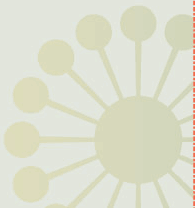THE MEMORY OF GHOSTS December is a time for remembering. The opening lyrics of The Fantastiks invite the audience to “try to remember” that deep in December without a hurt the heart is hollow and that it’s nice to remember earlier days when “grass was greener and grain was yellow,” when our perceptions were more accurate than our memories. Barbra Streisand reminds us that memories light the corner of our minds and help us recall the way we were. “Mem'ries, may be beautiful and yet What's too painful to remember, We simply choose to forget.” And from Cats, “Memory, all alone in the moonlight, I can dream of the old days. Life was beautiful then. I remember the time I knew what happiness was. Let the memory live again.” These musical cliches aside, memory is important to the human psyche, for it is our past that shapes our future. When the Ghost of Christmas Past makes his appearance, Scrooge asks, “Long Past?” “No,” says the ghost, “Your past.” Our past is not as it was, but as we remember it. Thus, we can have our roses in December. The question arises, however, in how memories are storied, processed, and retrieved. What happens to persons with dementia? Does the loss of functional memory mean that they have lost the sense of who they are? Early brain research held that memories were stored in the hippocampus. Later research has shown that older memories are transferred to the frontal cortex, and perhaps other parts of the brain such as the amygdala. Karl Pribram believes that the brain serves as a holographic assembler that takes fragments of memory from various parts and creates a meaningful whole. The Canadian neurosurgeon, Wilder Penfield, found that by stimulating certain parts of the brain he could create a sequential record of consciousness. Thus, the issue becomes not whether you can retain memory, but whether you can retrieve it. However, based on a purely medical or neurological understanding whereby memory is a product of the brain’s function, when the body dies, memory dies. Since our memory shapes who we are, what happens when we die? Or asked another way, “Do ghosts have memory?” The ancient Druids ( from the Gaelic meaning “oak-knower”) believed that trees, especially oaks, were the repositories of the tribal wisdom, that they possessed the memory of the Celtic peoples (thus Enya’s CD, “The Memory of Trees).” It is a belief held in many cultures and philosophies that memory or mind can coalesce and exist outside of its container, that we are simply processors of thought, memory, universal wisdom. Do our collective memories become one with a universal mind, a collective unconscious, the Mind of God? Do “good” memories and faith beliefs create a state of mind, commonly known as “heaven?” Does the inability to connect with this Unconscious or personal memory place one in a state of nonexistence, of not being aware of one’s own existence, a “hell” of one’s own creation or lack thereof? Whether apparitions are “false creations proceeding from the heat-oppressed brain” or purposeful essences that retain their memories and individuality, I choose to believe that there is some order to the universe and a reason for being. If I can only remember what it was.Dr. Harry L. Serio |
|
